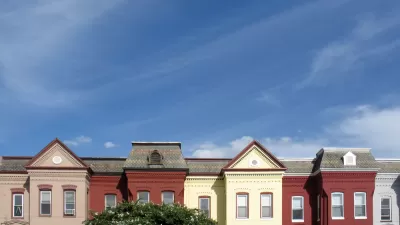One of the greatest challenges for US cities is the
perceived failure of public schools. Both as a means for attracting and
retaining the middle class and for providing upward mobility public schools are
crucial. Consequently, any effort to build livable cities must include
successful public schools so as to provide a ladder for the poor and to attract
and retain the middle class. Although education typically falls out of the
purview of planning, planners can ill afford to ignore such a key component of
what makes a place livable in the minds of many. Arguments about improving
public schools should therefore be of interest to planners, even if in their day-to-day
activities they have little time to consider public schools.
To remedy the perceived failure of urban public education
myriad solutions have been offered. Among the most pervasive of solutions are
those that seek to use the discipline of the market to improve the quality of
education that schools offer. The notion
is that if schools have to compete for students, rather than having a captive
clientele of neighborhood students, schools will step up their game, so to
speak. Vouchers, which provide public
dollars to students to use at the school of their choosing, and the No Child
Left Behind Act, which allows students to transfer out of failing schools are
two embodiments of the call to introduce competition into the public school
system.
At first glance, the notion of using competition to spur
improvement in public education seems wise. Think of the quality of food served
at most restaurants that have to compete for customers compared to that served
at institutions with captive clienteles (e.g. hospitals). Competition could surely work its magic on
public schools as well?
I'm less than sanguine that competition would be a panacea
for public education, even in places where these schools are clearly failing. Schools
would probably compete, but it is not necessarily the case that educational
quality would always be the primary factor they compete on. Educational quality
is not an easily measurable trait. If
one looks at higher education for example, while it is clear many colleges
compete for students on notions of educational quality, many others use other
enticements to attract students. Semi-professional football and basketball
teams, financial aid, guarantee of career success post-graduation, are but a
few of the non-educational items colleges use to compete for students.
In sum, while vouchers would likely spur competition and
innovation among some schools, and students and families might benefit from
greater choice, it seems unlikely that by itself, privatization could remedy
all that ills public education. Rather
than looking for a magic bullet in privatization and competition, we will need to
make the commitment to invest the resources to improve our public schools.
Other countries have managed to achieve educational excellence relying on
public schools; certainly we can achieve the same.
-->

Alabama: Trump Terminates Settlements for Black Communities Harmed By Raw Sewage
Trump deemed the landmark civil rights agreement “illegal DEI and environmental justice policy.”

Planetizen Federal Action Tracker
A weekly monitor of how Trump’s orders and actions are impacting planners and planning in America.

The 120 Year Old Tiny Home Villages That Sheltered San Francisco’s Earthquake Refugees
More than a century ago, San Francisco mobilized to house thousands of residents displaced by the 1906 earthquake. Could their strategy offer a model for the present?

Ken Jennings Launches Transit Web Series
The Jeopardy champ wants you to ride public transit.

BLM To Rescind Public Lands Rule
The change will downgrade conservation, once again putting federal land at risk for mining and other extractive uses.

Indy Neighborhood Group Builds Temporary Multi-Use Path
Community members, aided in part by funding from the city, repurposed a vehicle lane to create a protected bike and pedestrian path for the summer season.
Urban Design for Planners 1: Software Tools
This six-course series explores essential urban design concepts using open source software and equips planners with the tools they need to participate fully in the urban design process.
Planning for Universal Design
Learn the tools for implementing Universal Design in planning regulations.
Clanton & Associates, Inc.
Jessamine County Fiscal Court
Institute for Housing and Urban Development Studies (IHS)
City of Grandview
Harvard GSD Executive Education
Toledo-Lucas County Plan Commissions
Salt Lake City
NYU Wagner Graduate School of Public Service






























